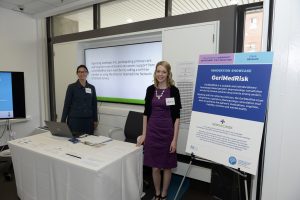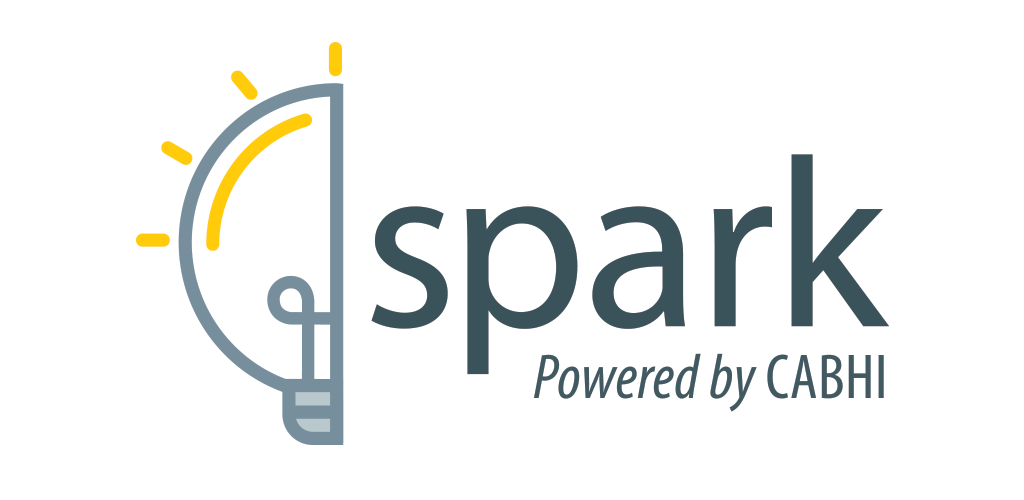The Centre for Aging + Brain Health Innovation (CABHI) is on the lookout for the next great idea.
A solution accelerator focused on driving innovation in the aging and brain health sector, CABHI – led by Baycrest Health Sciences – supports new products, services, and best practices that address challenges associated with the aging brain, including dementia.
CABHI recently announced the third round of funding available through its Spark Program. This program is an exciting opportunity for individuals working in a long-term care home or at the point of care to develop and test their innovative idea – paving the way to eventual real-world adoption of their product or service.
Those caring for or working closely with older adults understand the challenges and areas for improvement in seniors’ care in an intimate way, but may not have the access, backing, or resources needed to take their ideas to a wider audience. CABHI bridges that gap by providing financial and developmental support to these ideas with the potential to affect positive change for both aging adults and the healthcare sector at large.
Successful Spark applications will receive up to $50,000 CAD to support proof-of-concept testing for their projects. Up to $1 million in total funding is available.
In addition to the financial support, successful applicants also receive valuable guidance and feedback opportunities from CABHI’s innovation team. The opportunity to access this expertise in areas like business development, project management, design, and commercialization – among others – means that what starts out as a good idea stands a fighting chance at becoming a viable, successful product or service that finds its way into the hands of the people who genuinely need it.
CABHI supports innovations aimed at finding solutions to four care priorities:
- Aging in place: solutions that enable older adults with dementia to maximize their independence and age in the most appropriate setting of choice
- Caregiver support: solutions that support caregivers in their care for older adults with dementia;
- Care coordination and navigation: solutions that assist older adults, caregivers, and healthcare providers better coordinate and navigate care for older adults with dementia;
- Cognitive health: solutions that improve brain/cognitive health for aging adults or support the identification and assessment of adults at risk for dementia or other cognitive impairment.

Dr. Joanne Ho is pictured during CABHI’s innovation showcase.
One successful Spark project is GeriMedRisk, a network of geriatric medication specialists that support clinicians involved in the primary care of older adults. When clinicians have a question about their patient’s medication, they can call telephone or e-consult with GeriMedRisk and reach a specialist who is able to help. The service is meant to optimize patients’ medication plans, leading to improved cognition, mobility, and mental health – while also decreasing adverse effects caused by less-than-ideal prescriptions.
The financial support and guidance from CABHI have helped to accelerate the development and adoption of the innovation. With coordination from CABHI, GeriMedRisk was tested in long-term care facilities across the Kitchener-Waterloo region, where founder Dr. Joanne Ho and her team are based. The results were overwhelmingly positive.
Most recently, the Waterloo Wellington Local Health Integration Network (WWLHIN) has granted $500,000 and committed to adopting the program across the entire LHIN. GeriMedRisk is on track to become a regular fixture in clinical practice across the region, helping to improve the care provided to its older adults.
“CABHI’s support through the Spark program helped us take off,” said Dr. Ho. “To receive financial support from an organization like CABHI and to know that they support our research…carries weight.”
One long-term care resident shared that “without the [GeriMedRisk] recommendation I would still be on too many medications… It’s a great service and I would recommend it highly to anybody.”
Another successful Spark project is iGeriCare, a digital resource platform to which physicians can

Dr. Richard Sztramko
refer patients and families after a diagnosis of dementia, in order to better understand the medical and emotional journey ahead.
iGeriCare offers learning modules developed with input from geriatricians, clinical staff, patients, and families. Older adults newly diagnosed with dementia and their families are able to access the resources at their own pace, which can reduce stress and increase retention and understanding of key information. They can also be assured the information is coming from a trustworthy source.
“The Spark catalyst is really what started everything,” said project lead Dr. Sztramko. “Once we got that award, everybody else seemed to jump on board and get really excited about iGeriCare. We used the money to build out the project, but also acquire human resources – it’s been extremely helpful.”
“If I were backing up several years and was in the middle of my family member’s crises with Alzheimer’s, I would find this very helpful,” shared a caregiver who used some of the iGeriCare modules.
Post-Spark, iGeriCare received additional funding from CABHI to test the program in a real-world care setting. The project is on its way to change the way in which older adults and their families understand, and are prepared for, the realities of dementia.
The deadline to apply for Spark is 5 p.m. EST on June 14, 2018. Application and full details are available here.


